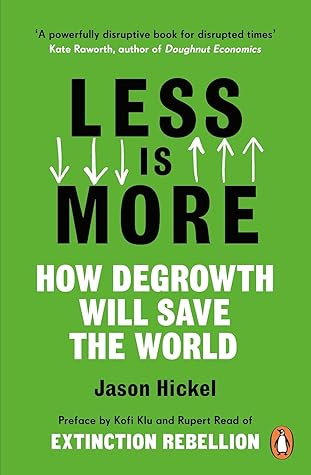More on this book
Community
Kindle Notes & Highlights
by
Jason Hickel
Read between
January 1 - January 3, 2021
Clean energy might help deal with emissions, but it does nothing to reverse deforestation, overfishing, soil depletion and mass extinction. A growth-obsessed economy powered by clean energy will still tip us into ecological disaster.
In 2017, an American college sophomore named Trevor Hill stood up during a televised town hall meeting in New York and posed a simple question to Nancy Pelosi, the Speaker of the US House of Representatives at the time and one of the most powerful people in the world. He cited a study by Harvard University showing that 51% of Americans between the ages of eighteen and twenty-nine no longer support capitalism, and asked whether the Democrats, Pelosi’s party, could embrace this fast-changing reality and stake out a vision for an alternative economy.
YouGov poll in 2015 found that 64% of people in Britain believe capitalism is unfair. Even in the US, it’s as high as 55%. In Germany, a solid 77%. In 2020, a survey by the Edelman Trust Barometer showed that a majority of people around the world (56%) agree with the statement, ‘Capitalism does more harm than good’. In France it’s as high as 69%. In India it’s a staggering 74%.
What explains the remarkable results that these countries have achieved? It’s simple: they’ve all invested in building high-quality universal healthcare and education systems.9 When it comes to delivering long, healthy, flourishing lives for all, this is what counts.
In 2014, the political scientist Adam Okulicz-Kozaryn conducted a review of all the existing data on this question. He found something remarkable: countries that have robust welfare systems have the highest levels of human happiness, when controlling for other factors. And the more generous and universal the welfare system, the happier everyone becomes.17 This means things like universal healthcare, unemployment insurance, pensions, paid holiday and sick leave, affordable housing, daycare and strong minimum wages.


